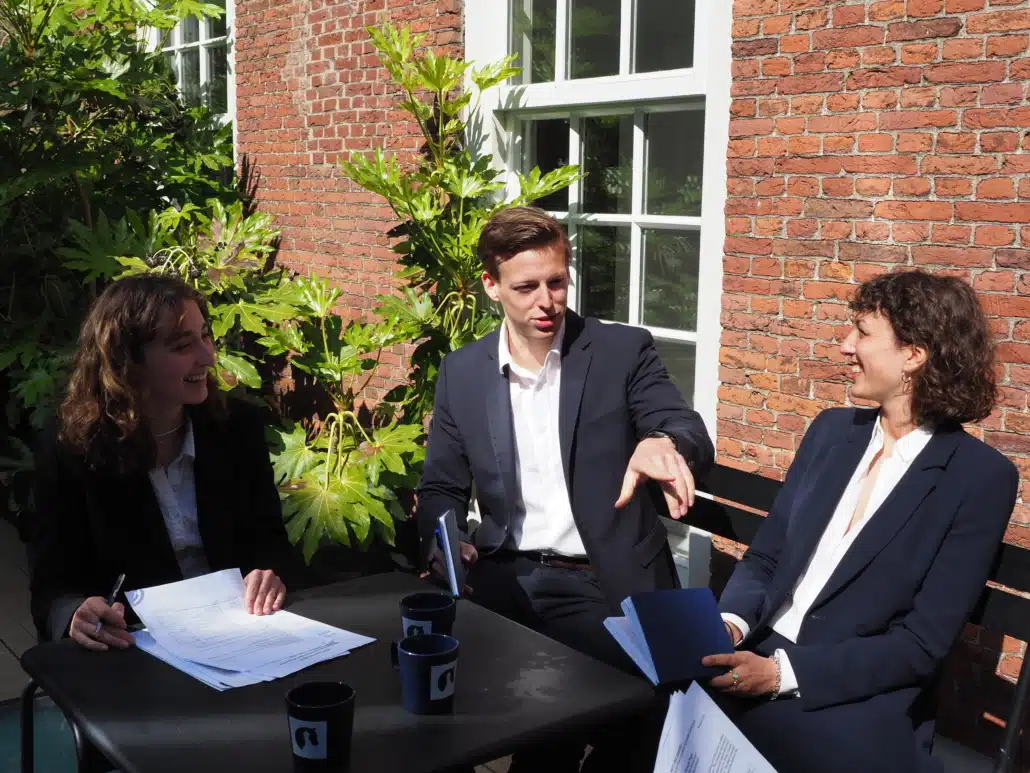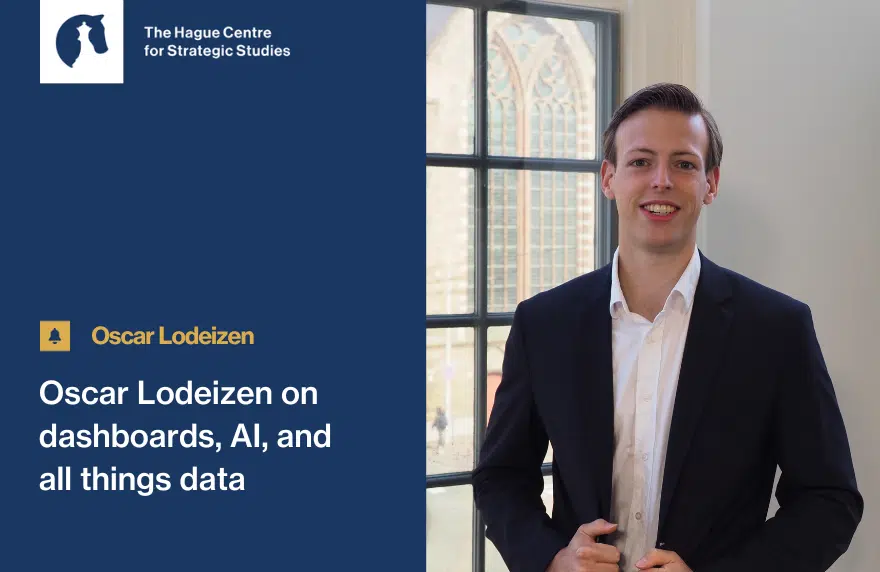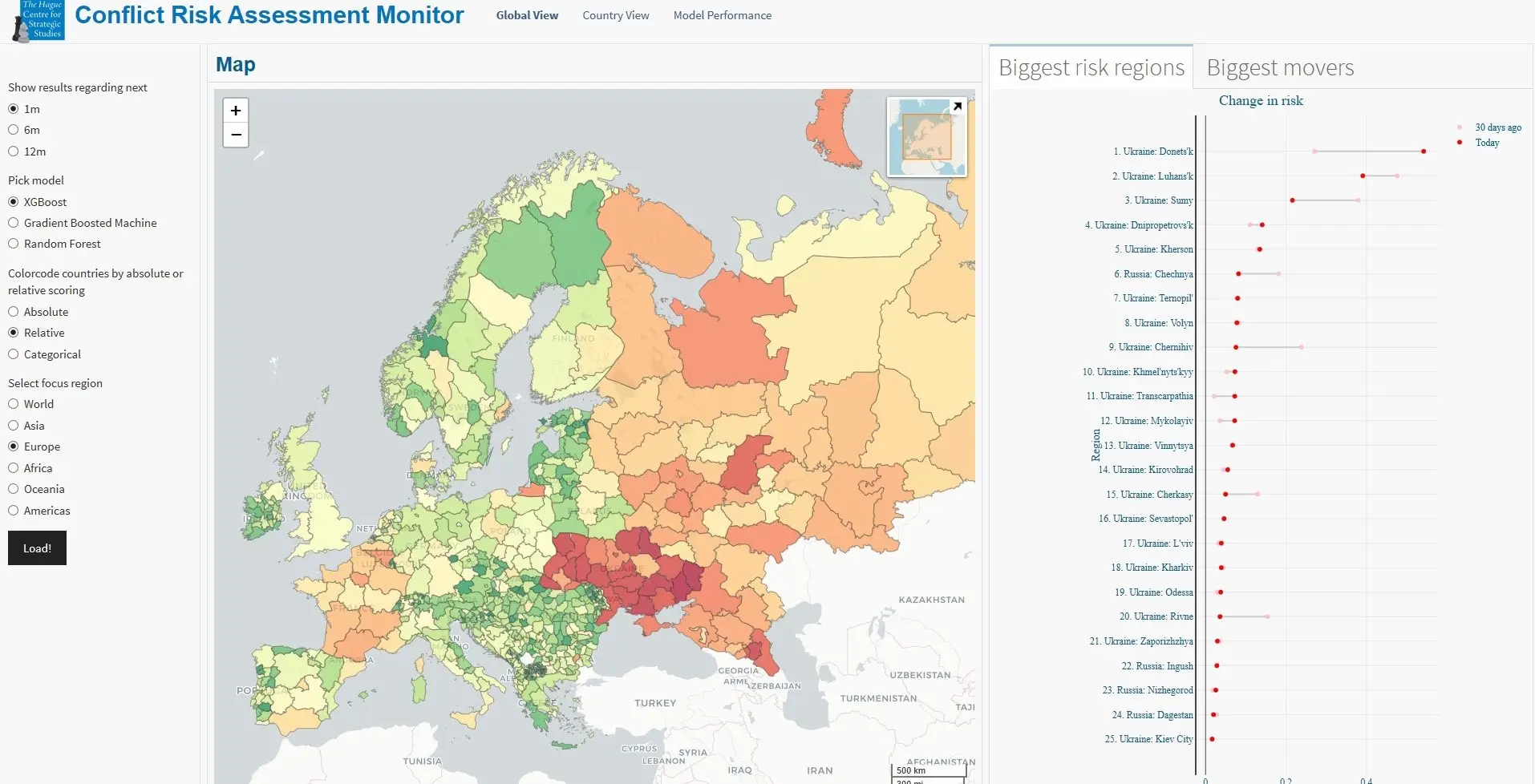Hi Oscar, could you introduce yourself? Tell me where you are from, what your educational background is, if you had any prior work experience before your internship at HCSS?
My name is Oscar Lodeizen, and I’m one of the Datalab interns at HCSS. I grew up in Voorburg and now live in The Hague. I completed my bachelor’s degree in Technology, Policy and Management at TU Delft in the chosen ICT track and am currently pursuing a master’s degree in Engineering and Policy Analysis. To complement this, I pursued a minor in Data Science and Artificial Intelligence at Leiden University. Before my internship at HCSS, I didn’t have formal full-time work experience, which made this opportunity particularly exciting as a first step into the professional world.
So, what initially attracted you to the HCSS internship programme, and why did you apply specifically for the Datalab?
I was looking for a way to develop myself professionally alongside my academic background and gain more practical experience with programming and development. During my studies, I had already worked on AI-related topics from both theoretical and policy perspectives, but I felt that the hands-on side was still missing. The Datalab internship seemed like a perfect opportunity to apply my technical skills in a setting where they could actually contribute to meaningful work. In addition to the internship itself, I was really drawn to HCSS’s strong reputation and the professional quality of its output, which made it feel like a great environment to grow and contribute meaningfully.
What specific projects have you been involved in during your internship? And how have these experiences helped you develop professionally?
Alongside supporting analysts with smaller tasks, I mainly worked on two larger projects, DOMINO and SARA.
DOMINO, which stands for the Dutch Observer for Materials Intelligence and Operations, is a tool designed to help track disruptions in global supply chains for critical raw materials. It collects hundreds of news articles from around the world every day and uses artificial intelligence to automatically filter, label and summarise the most relevant ones. These insights are shown on an interactive dashboard, making it easier for policymakers to quickly understand where risks might be emerging. My role involved developing the pipeline that collects, processes and organises this large flow of information.
The other project, called SARA, or the Synthetic Assistant for Report Analysis, is an internal tool that makes it easier to find and analyse content from the full archive of HCSS reports. It uses a smart method called Retrieval-Augmented Generation, combining hybrid vector and keyword-based search with a deeper AI-driven understanding of context to create answers presented in natural language. It is designed to grow with the expanding HCSS archive and is developed as an interactive chatbot. My role within SARA has been from collecting and structuring the data, to developing the internal workings of the chatbot, and finally designing the front end. I was given a lot of responsibility and my ideas and input were often taken on board from the very start, hence making this my absolute favourite project to work on.
Both projects allowed me to learn how complex information can be turned into something accessible and useful. They also gave me experience with teamwork, responsibility and presenting my ideas, which were all valuable parts of my professional growth.
What kinds of roles and responsibilities do you have as an intern at HCSS?
I think the role of a Datalab intern is quite different from the general research internships at HCSS. What I liked most was the freedom to work on projects that matched my interests and experience, particularly in the area of AI. Of course, that freedom came with responsibility. As a developer, you are often working independently on building tools or dashboards, and you need to find your own way to reach your goals. That can be challenging and even frustrating at times, but it is also what makes it so fulfilling when things come together.
Besides development work, I also contributed to other ongoing projects by helping with visualisations, datasets, and various data-related tasks. Although these assignments were a lot smaller, your contributions as an intern at HCSS are valued very highly, which brings a sense of responsibility as well.
How has this internship influenced your career goals or aspirations?
I have always known that I wanted to work with AI and data, so in that sense, nothing changed. However, the internship definitely strengthened and confirmed that path for me. It made me realise how important it is to have both affinity and enthusiasm for the field you are in. The tools I worked on showed me the real impact your ideas and work can have, and that has only increased my motivation to continue down this path.
What advice would you have for future interns that are thinking of applying?
Go for it! My time at HCSS has been incredibly valuable, both for learning and for having fun. If the internship aligns with your interests and you are ready for the challenge, I would absolutely recommend applying. The application process can be intense, so preparation is key, but it is definitely worth the effort!


This interview was conducted by HCSS Communications & Events Officer, Stephanie Govaerts






